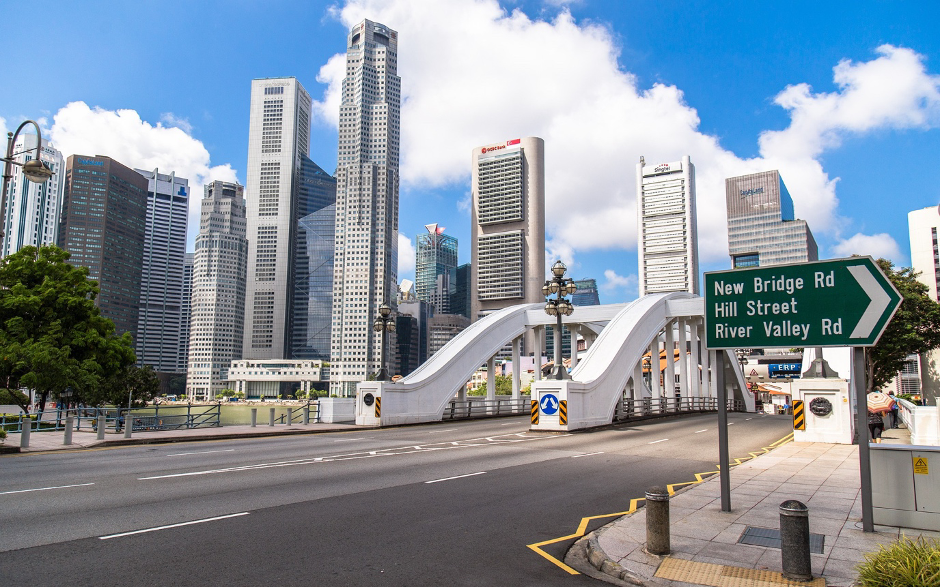As you navigate the bustling streets of Singapore, have you ever stopped to think about the intricate web of factors that drive the city-state’s thriving property market? One crucial element that often flies under the radar is infrastructure investment. You may have noticed how new MRT lines, expressways, and amenities seem to sprout up alongside soaring property prices. But is this mere coincidence, or is there a deeper connection at play? In this article, we’ll research into the fascinating correlation between infrastructure investment and rising property values in Singapore, and what it means for your investment decisions in Parktown Residence.
Historical Context of Infrastructure Development in Singapore
For you to fully appreciate the correlation between infrastructure investment and rising property values in Singapore, it’s vital to understand the historical context of the country’s infrastructure development.
Early Years: Building the Foundation
Early on, Singapore’s infrastructure development was focused on building the foundation for a modern economy. In the 1960s and 1970s, the government invested heavily in constructing roads, bridges, and public housing estates to accommodate the rapidly growing population. This initial investment laid the groundwork for future growth and set the stage for Singapore’s transformation into a modern city-state.
Modern Era: Upgrading and Expansion
Early in the 21st century, Singapore’s infrastructure development entered a new phase, characterized by upgrading and expansion. The government launched several mega-projects, including the Circle Line and Downtown Line, which significantly enhanced the country’s public transportation system.
Another key aspect of this modern era was the focus on sustainability and green infrastructure. The government introduced initiatives such as the “City in a Garden” vision, which aimed to transform Singapore into a lush, green city. This included the development of parks, gardens, and waterways, which not only improved the quality of life for Chuan Park residents but also increased property values in surrounding areas.
The Impact of Infrastructure Investment on Property Values
It’s no secret that infrastructure investment has a profound impact on property values. As you research deeper into the relationship between the two, it becomes clear that this correlation is not just coincidental, but rather, it’s a direct result of the benefits that infrastructure investment brings to an area.
Direct Correlation: Accessibility and Convenience
Infrastructure development, such as the construction of new roads, public transportation systems, and amenities, increases the accessibility and convenience of an area, making it more attractive to potential buyers and renters. As a result, property values in these areas tend to rise, reflecting the increased demand and desirability of the location.
Indirect Correlation: Economic Growth and Job Creation
Investment in infrastructure also has a ripple effect on the local economy, stimulating growth and creating new job opportunities. This, in turn, leads to an influx of new residents and businesses, driving up property values as demand for housing and commercial space increases.
To further illustrate this point, consider the impact of a new transportation hub on the surrounding area. As businesses and residents flock to the area, drawn by the convenience and accessibility it provides, the local economy experiences a surge in growth. This growth creates new job opportunities, which in turn attract more people to the area, driving up property values as demand for housing and commercial space increases. As you can see, the correlation between infrastructure investment and rising property values is a complex one, with multiple factors at play.
Factors Influencing the Correlation
Even as you research into the relationship between infrastructure investment and rising property values in Singapore, it’s necessary to consider the various factors that influence this correlation. These factors can amplify or diminish the impact of infrastructure investment on property values, making it crucial to understand their roles.
The key factors influencing the correlation include:
- Government policies and regulations
- Demographic shifts and urbanization
- Economic conditions and growth
- Supply and demand dynamics
- Technological advancements and innovations
Perceiving these factors as interconnected and interdependent will help you better grasp the complexities of the correlation between infrastructure investment and rising property values in Singapore.
Government Policies and Regulations
On the heels of infrastructure investment, government policies and regulations play a significant role in shaping the property market. Policies such as the Urban Redevelopment Authority’s (URA) Master Plan, which guides urban development, and regulations like the Additional Buyer’s Stamp Duty (ABSD), which aims to cool the market, can either stimulate or slow down property value growth.
Demographic Shifts and Urbanization
For instance, changes in population demographics, such as aging or migration, can influence housing demand and, subsequently, property values. Urbanization, too, can drive up property values as people flock to cities, increasing demand for housing and amenities.
Correlation between demographic shifts and urbanization is critical, as it can lead to increased demand for housing, amenities, and infrastructure. As Singapore’s population ages, there may be a greater need for age-friendly housing and infrastructure, driving up property values in areas that cater to this demographic. Similarly, urbanization can lead to gentrification, making certain neighborhoods more desirable and increasing property values.
Conclusion
Hence, as you research into the intricacies of Singapore’s property market, it becomes apparent that infrastructure investment plays a pivotal role in shaping your real estate decisions. The data suggests that strategic investments in transportation, amenities, and public spaces not only enhance the quality of life but also yield significant returns on your property investments. By recognizing this correlation, you can make informed decisions that maximize your returns and capitalize on the opportunities presented by Singapore’s thriving property market.

